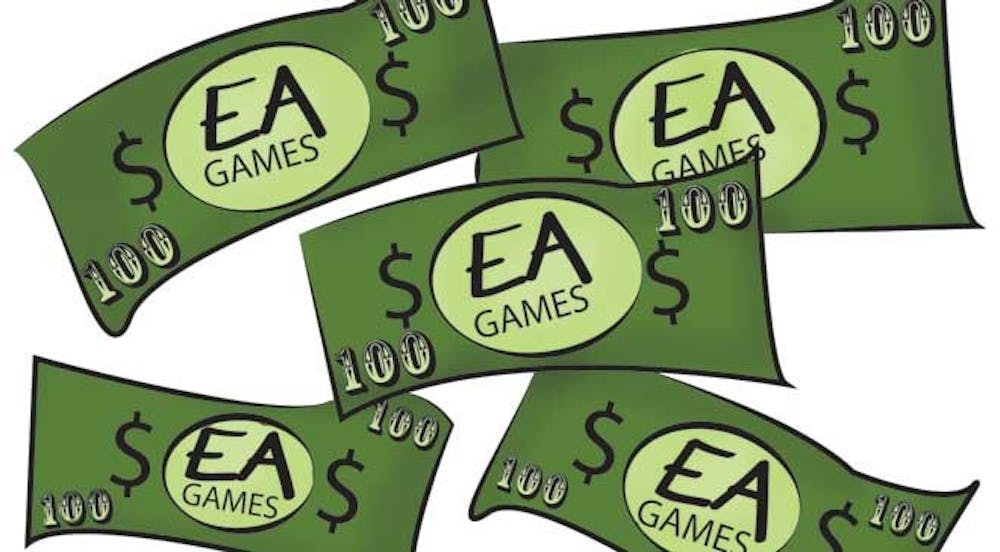I spent the better half of my Labor Day morning dancing to the Pussycat Dolls. I'm not the most skilled when it comes to interpretive dance, so I was utterly spastic when I tried to imitate the movements of the dancing silhouette on the screen.
The Wii Dance disc was whirring in the disk drive and, according to the score, the 7-year-old boy I was babysitting was out-grooving me.
I lost that round and relinquished the controller to the 4-year-old when Ke$ha kicked in for the next sequence of shimmying. I collapsed onto the couch and watched the kids laugh and sing while they danced. In one morning, I learned they loved all that the Wii had to offer, from bowling to tennis and dancing.
Later I learned that kids are not alone in favoring video games -- they have America's government on their side. A recent New York Times article included the information that the government gives tax breaks to companies like Electronic Arts, which just released one of its most popular and violent games, "Dead Space 2."
Technically, the tax breaks are intended for companies that focus on research and development in such fields as medicine, urban planning and environmental improvement. But some entertainment organizations like Electronic Arts have latched onto the benefits because they are devoted to software development.
According to the article, the range of corporations in America received tax breaks totaling $123 billion from the federal government in 2010. The video game industry as a whole earns an average of $15 billion from sales in the U.S. per year.
I'm not surprised by how lucrative the industry is. I'm certainly guilty of coercing my parents into putting money into Electronic Arts -- I begged them to buy "The Sims" during a brief but intense childhood gaming infatuation. I'm also guilty of enjoying every second I spent jamming in front of the Wii last week.
But after hearing President Obama rejoice on campus over his Jobs Bill, I don't feel like the guilty one. I won't say Obama is either -- any president of ours would be pressured to solve U.S. economic issues regardless of political ideology.
The government, as a unit, has been, and still is, guilty. The details of corporate taxation were worked out in 1954 even before video games became a popular black hole of time.
That year, Congress instated tax breaks for companies conducting experiments and research in labs. Daniel Reed of the House Ways and Means committee promoted the mentality that the tax measures would lead to new products and other innovations that could secure the country's military and economic statuses, according to the Times article.
The breaks were extended to software development in 1969, just in time for the rise of the video game craze in the 70s.
The issue is that any focus on the absurdity of these tax breaks has hit the back burner in light of the economic recession. Tax breaks given to video game corporations have not yet been successfully opposed in the political system, and the government is now preoccupied with the push to enact tax cuts to benefit the masses rather than to consider the elimination of unnecessary tax breaks.
Enjoy what you're reading?
Signup for our newsletter
It's enough to lure anyone into the pixilated, alternate reality of the gaming world.
Support independent student media
You can make a tax-deductible donation by clicking the button below, which takes you to our secure PayPal account. The page is set up to receive contributions in whatever amount you designate. We look forward to using the money we raise to further our mission of providing honest and accurate information to students, faculty, staff, alumni and others in the general public.
Donate Now


